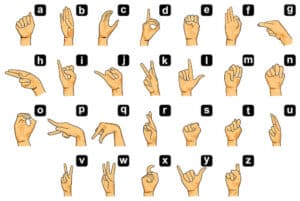Wondering “How Long Should I Read a Day?” Here is an answer.

There are not many pursuits that can overshadow the popularity of reading, and there is no wonder why. It improves intelligence, enlarges our mental horizons, and gives us ideas and sources of imagination. It shields us from the outer world and makes us switch from reality to great fantasy, especially when this world is going through a social crisis, as one we’ve been having for the last two years.
Reading offers an especially rich replica of reality that we can dive into for knowledge and ideas. And, finally, it is one of the easiest ways to become smarter. Wanting to know more is our essential desire, and reading helps to fulfill it. But how often should you read?
In this article, we tried to find out recommended reading time per day and describe the benefits of reading daily and answer the question “How long should I read a day?”.
The question is, “How long should I read a day to stimulate my brain?”
Why do we read?
Reading is a way to improve smartness, be aware of things and processes that exist on our planet, and feel confident in the company of friends and colleagues.
Reading provides fresh knowledge, but also it means regular brain maintenance. Also, reading does not signify books only. Meaningful articles, sci-fi publications, and blogs also qualify as good reading.

How much to read a day? Are there real benefits of reading 30 minutes a day?
Well, that’s a tricky question. The thing is, there is no magic number of minutes, hours, or amount of pages one should read. Recommended reading time per day is a highly relative matter because it varies largely from person to person, depending on what we read, with what goal, etc.
However, numerous studies have defined that 15-30 minutes is a minimum interval we should dedicate to reading each day. Neuroscientists agree that even simple lifestyle changes, like daily 15 minutes with a nose in a book, will support your brain health for a lifetime.
Think about it. If you read anywhere between 2–4 articles online, you are already in the 15 minutes club.
Also, you can divide daily reading into multiple sessions: 10 minutes in the morning while on public transport, another five during the coffee break, and some quick 15 before bed. You can easily do 30 minutes of reading a day without colossal effort.
You don’t have to read half of the book at a time to feel improvements, but quality 20 minutes of reading a day can be enough for brain stimulation.
It makes sense to set book reading time limits for discipline purposes. These fixed time slots support us when we need to implement reading into our daily routine. What matters is to make progress step by step.
On the other hand, it is not so important how long you read, but what kind of material you choose. Twenty minutes with meaningful pieces is much more effective than 2 hours of gossip columns. Less is often more.
Anyhow, the key here is to like the process. If you read because you must (like MUST), you will feel the pressure of this requirement. Consequently, there is a great chance you will hate it in the end. On some days, you can’t read more than three pages, but on other ones, you manage to do 100. The thing is to try doing it regularly without being harsh to yourself for a minor setback. It is okay to fall off the wagon as long as we get back on.
Benefits of reading daily
We hear about the benefits of reading daily from every corner. You can probably name five without thinking. Here we try to explain some of them.
Brain strength
Our bodies need physical exercise to become stronger. And the more we train, the more we improve. The same rule applies to the brain. Reading works as magic weights here, and good literature, new articles, and blog posts give the brain a powerful workout. Without exercise, it becomes lazy. So, use it or lose it.
Also, our brain reacts differently depending on what we read.
Stanford University researchers found that study reading provokes multiple brain cognitive functions, while pleasure reading increases blood flow to different brain parts. It seems like a mix & match strategy can work here.
Moreover, reading can prevent disease progression. Studies by Case Western Reserve University showed that activities such as reading could decrease the chances of Alzheimer’s disease by 2.5 times.
New skills and knowledge
This is an easy one. We need new knowledge and competence to keep up with the ever-changing world, improve our professional lives, and understand how things work.
Reading gives us free education (not counting the cost of the books and your subscription to Nerdish). Think about it. With just 30 minutes of reading a day, five days a week – you’ll likely be better at some topic than most of your friends.
It’s also true that switching things up is necessary to gain a new perspective. That was one of the reasons why we created Nerdish. Here we publish easy-to-read articles based on profound research about everything on Earth. We want to change the approach of using smartphones when instead of purposeless scrolling, people can read more effectively and learn information more quickly.
Increased attention and concentration levels
Do we like it or not, our mind tends to wander, getting distracted by phone notifications, new Netflix series in the background, or just other people. Sometimes it may be hard to sit and concentrate on one task for 20 minutes straight. However, our attention increases with periodic reading, especially when a good book comes into our hands. As a result, we can learn to focus on reading and any other activity.
Vocabulary booster
With our daily work-home routine, we tend to use a constant amount of words. Consequently, we can find ourselves living in a language bubble.
The average reader can see about 7,500 words with just 30 minutes of daily reading. That’s over 50,000 in just a week, and some of these words can be new. What’s more, reading not only expands the vocabulary but shows the context of word usage. In this way, it’s more likely to memorize and reproduce them.
Additionally, by reading words, we can improve our writing: on the spelling level and the style of sentences.
Relaxation
Some of the studies showed that 30 minutes with a book on a daily basis could reduce cortisol levels in similar amounts as 30 minutes of doing low-intensity yoga. Reading helps us to relax by lowering heart rate and easing muscle tension. Also, a 2009 survey showed that spending time with a book was among the top stress remedies.
Reading is an instrument for stepping away from the “hustle culture” mindset that keeps us forever busy. We deserve at least these quiet minutes to change the scenery, turn off the real world and recharge our batteries.
Better sleep
As reading helps us to relax it also secures us with better sleep. A study by the University of Sussex showed that six minutes of reading could reduce stress by 68%, clear the mind and prepare the brain for sleep.
That said, we should highlight that this is not the case for e-readings. Too much light before bedtime throws off our biological clock, which is one of the reasons why we don’t get enough restful sleep. Harvard Medical School studies showed that so-called “blue light” from our smartphones reduces melatonin secretion, a hormone that influences circadian rhythms. With Nerdish, by the way, you can use a dark theme and prevent a decrease in melatonin.
Increases empathy
While reading a book, we sample across a wide range of characters, often putting ourselves in their shoes and coming to understand their motifs and ways of thinking. When some stories give us ideas we disagree with, we have an opportunity to rethink them in a harmless way. As a result, we can better understand real people and improve our communication and warmth towards them.
One Toronto University study showed that people with solid fiction-reading habits have better results in social acumen tests.
Life experience
Researchers from the Laboratory of Language Dynamics in France have discovered that the brain does not make a significant distinction between reading about an experience and living through it.
So, there is some truth in the saying that “a reader lives a thousand lives before he dies.”
Brain scans showed that in each case, the same neurological parts are activated. So, even if there is not much going on in real life, reading about the adventure can be a rather good substitute.
How do we read at Nerdish?
As for our team, everyone has different reading habits. Someone has 20-30 minutes a day for pleasure reading while working with texts all day long. Depending on inspiration and motivation, someone goes with the flow: sometimes it can be tens of books a year, sometimes none. Someone reads fiction every month and 2-3 professional books every year. And someone sets a goal of how many books they can read during a year, and this number works as a magic kick.
As for the night, someone picks non-fiction books before bed because it helps them fall asleep quicker. Anyhow, reading is an essential part of our lives.
So, there is no right answer on “How much to read a day?”. Outstanding achievements start with daily regularly. Do it for 15 minutes, do it for 20. Just do it—read every day.
As for our team, everyone has different reading habits. Someone has 20-30 minutes a day for pleasure reading while working with texts all day long. Depending on inspiration and motivation, someone goes with the flow: sometimes it can be tens of books a year, sometimes none. Someone reads fiction every month and 2-3 professional books every year. And someone sets a goal of how many books they can read during a year, and this number works as a magic kick.
As for the night, someone picks non-fiction books before bed because it helps them fall asleep quicker. Anyhow, reading is an essential part of our lives.
So, there is no right answer to daily reading. Outstanding achievements start with regularity. Do it for 15 minutes, do it for 20. Just do it—read every day.














